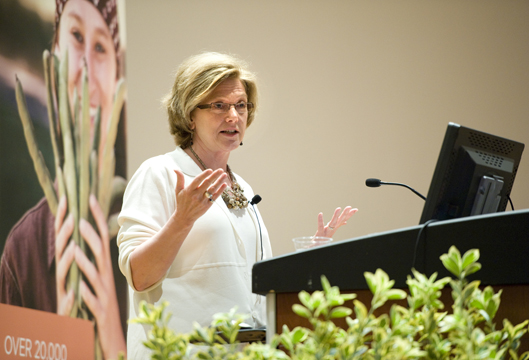No, I’m not talking plastic surgery here, I’m talking about business leadership and its corpus. This Latin word literally means “body,” and Marjorie Kelly’s work has focused on that collective physique we have named “the corporation.” She first examined the history of laws that govern corporate norms in her book, The Divine Right of Capital. She uncovered corporate law’s deep roots in royalist thinking. One of my most admired journalists, William Greider, wrote the foreward.
She followed that up with what I am calling her body makeover. She calls for wider democratic ownership of business organizations in her book Owning Our Future. What she calls “generative” corporations would share work and production’s profits more cooperatively. She contrasts this new kind of endeavor with the old model of “extractive” corporations that exploit natural resources and cheap labor to produce maximum profit for its wealthy shareholders alone.
Part of a “new economy” group called The Democracy Collaborative, Kelly and her latest goal is to inspire a movement of 50 million corporate worker-owners by 2050. A wonderful writer, her latest work can get wonky, so I’ll link you here to one of her earliest questions: Can Corporations Be Good? published in Yes! Magazine back in 2012.
Yes! Magazine is full of unscrewed news and positive vibes. Its publisher, Fran Korten, wrote about Kelly’s history and her latest goal for worker-ownership more recently in TruthOut. These two articles will introduce you to Kelly’s innovations, and also to two cutting-edge publications, if you don’t already know them. You can connect with her Fifty By Fifty Network at https://www.fiftybyfifty.org
Despite her use of the g-word, generative, which literally requires diverse chromosomal exchanges between two sexes, Kelly seems reluctant to mention gender in her work. I can’t say I blame her, as that generally doesn’t help you get ahead. But gender is an element I consider crucial to understanding the meaning of “female” in a still male-dominated world of business and money—and crucial for both men and women to understand if we’re to make lasting corpus/corporate changes.
—Rickey Gard Diamond


